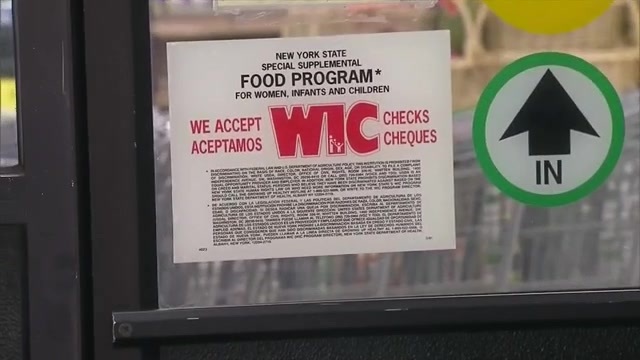BOSTON (AP) — Two federal judges ruled nearly simultaneously on Friday that President Donald Trump’s administration must continue to fund SNAP, the nation’s largest food aid program, using contingency funds during the government shutdown.
The rulings came a day before the U.S. Department of Agriculture (USDA) planned to freeze payments to the Supplemental Nutrition Assistance Program (SNAP), citing an inability to maintain funding due to the ongoing shutdown. SNAP serves about one in eight Americans and is a critical part of the nation’s social safety net.
News in October that SNAP payments might stop as of Nov. 1 due to the shutdown sent states, food banks, and SNAP recipients scrambling to find ways to secure food. Some states responded by pledging to use their own funds to maintain versions of the program. Nationally, SNAP costs around $8 billion per month.
Democratic state attorneys general and governors from 25 states, along with the District of Columbia, challenged the administration’s plan to pause the program. They argued that the administration has a legal obligation to keep SNAP running within their jurisdictions.
The administration contended it was not permitted to use a contingency fund containing about $5 billion for SNAP. This stance reversed a previous USDA plan before the shutdown, which had indicated that contingency funds would be tapped to continue SNAP operations. The Democratic officials countered that not only could the contingency funds be used, but they must be. They also pointed to a separate federal fund with approximately $23 billion available for the program.
In Rhode Island, a federal judge ruled from the bench that the program must be funded using at least the contingency funds, requesting an update on progress by Monday. Meanwhile, a Massachusetts-based judge gave the administration until Monday to clarify whether it would partially pay November’s benefits with contingency money or fund them fully using additional federal funds.
It was unclear how quickly the debit cards that beneficiaries use to buy groceries could be reloaded following the rulings. The process often takes one to two weeks. These rulings are expected to face appeals.
During a hearing Thursday in Boston concerning the legal challenge filed by the Democratic officials, U.S. District Judge Indira Talwani expressed skepticism toward the administration’s argument that SNAP benefits could be halted. Judge Talwani noted that if the government cannot afford to cover the costs, there is a process to follow rather than simply suspending all benefits.
“The steps involve finding an equitable way of reducing benefits,” Talwani said. She appeared inclined to require the government to allocate billions of dollars in emergency funds toward SNAP, interpreting this as Congress’s intent when an agency’s funding runs out.
“If you don’t have money, you tighten your belt,” Talwani stated. “You are not going to make everyone drop dead because it’s a political game someplace.”
Government lawyers maintain that the contingency fund with around $5 billion cannot legally be used to maintain SNAP, which costs approximately $8 billion per month. However, states insist that the fund must be used for that purpose and highlight the availability of additional money in another federal account holding around $23 billion.
Judge Talwani’s ruling is expected to apply nationwide, not just in the states involved in the challenge. This broad application could challenge the U.S. Supreme Court’s stance, which has limited the use of nationwide injunctions, though it has not outright banned them.
Meanwhile, states, food banks, and recipients have been preparing for a sudden change in how low-income Americans access groceries. Most states have announced increased or expedited funding for food banks or new methods to reload at least some benefits onto the debit cards used in SNAP.
Advocates and beneficiaries warn that halting food aid would force people to choose between buying groceries and paying other essential bills.
At a press conference on Friday in Washington, Agriculture Secretary Brooke Rollins, whose department administers SNAP, stated that the contingency funds would not cover the cost of SNAP for an extended period. Speaking alongside House Speaker Mike Johnson at the Capitol, Rollins blamed Democrats for what she called a “disgusting dereliction of duty” by refusing to end their Senate filibuster while holding out for health care fund extensions.
Efforts in Congress this week to continue SNAP funding during the shutdown failed.
To qualify for SNAP in 2025, a family of four’s net income after certain expenses cannot exceed the federal poverty line, which is about $31,000 per year. Last year, SNAP provided assistance to 41 million people, nearly two-thirds of whom were families with children, according to the lawsuit.
https://wsvn.com/news/politics/judges-order-the-trump-administration-to-use-contingency-funds-for-snap-payments-during-the-shutdown/
